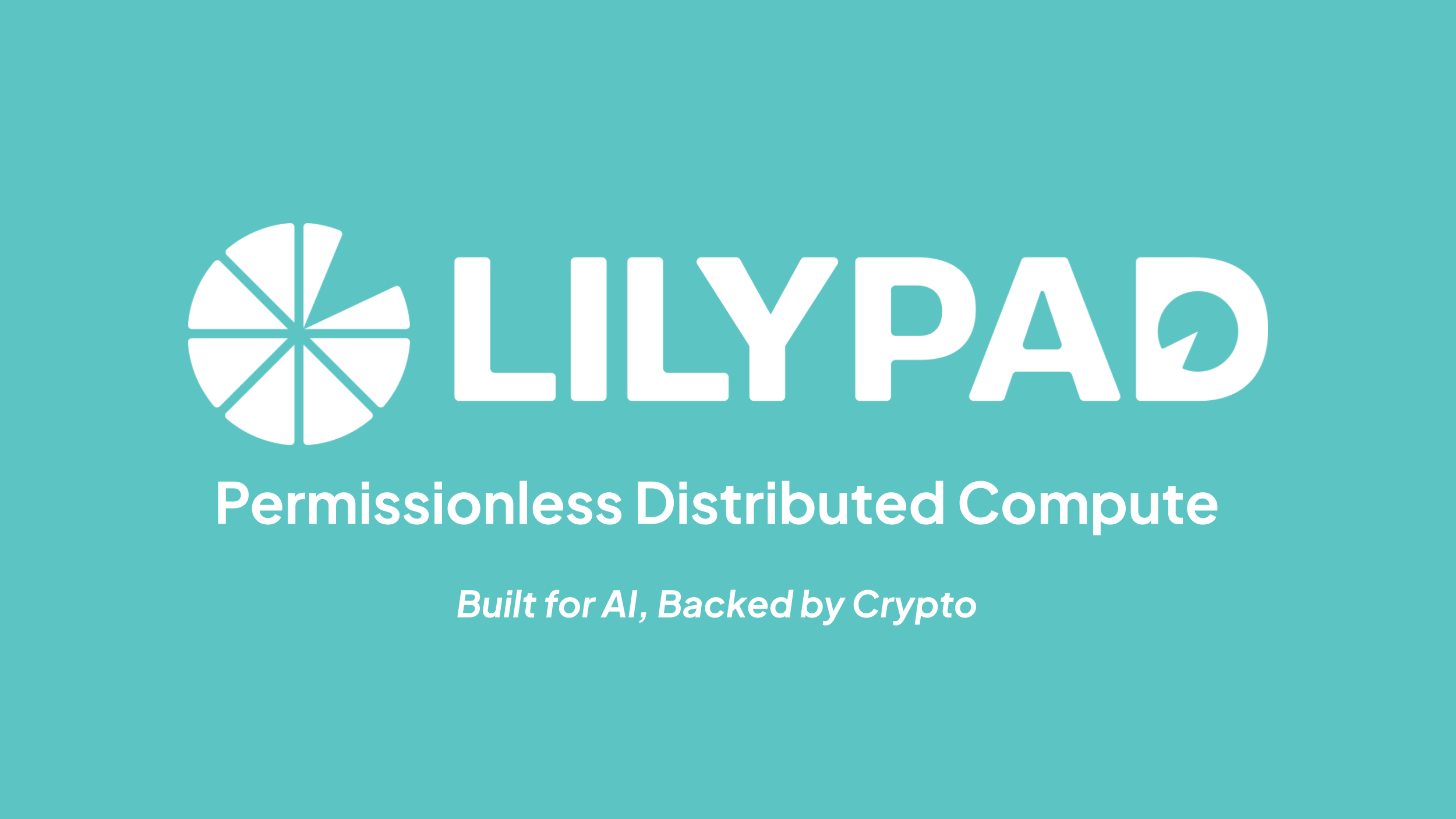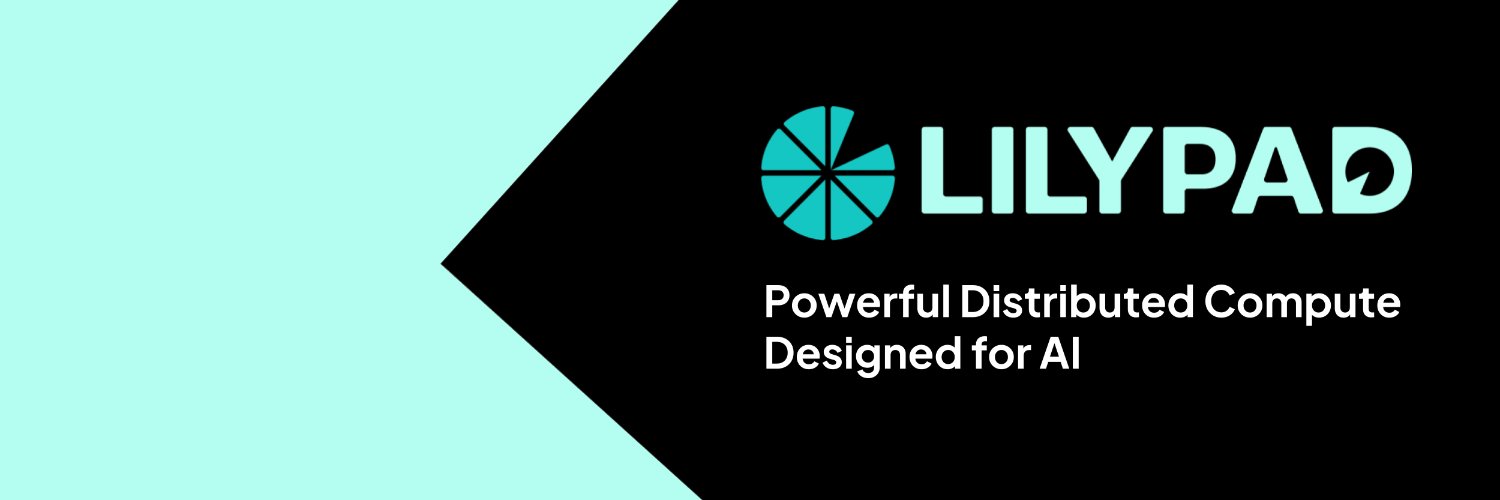Hop into the future with Lilypad the distributed compute network
 Jonathan Albert
Jonathan Albert
Introduction
Web3 is decentralizing the internet at its root, but there are a lot of growing pains. The InterPlanetary File System (IPFS) and blockchains enable users to store their files and transaction data in distributed systems, but making use of the data is reserved for large, centralized organizations.
Machine Learning (ML), Artificial Intelligence (AI), social media algorithms, gaming networks, simulations, trading algorithms, large-scale data analysis, and most of the modern internet demand significant resources to compute data. The cheapest Graphic Processing Unit (GPU) costs hundreds of dollars, and many of these complex computations require thousands of GPUs, making it nearly impossible for small teams to participate in most emerging tech. While tech whales continue to dominate the sea of data on the internet, there is a new hope sprouting in the Web3 pond known as Lilypad.

Decentralizing Computing
In the Lilypad network, node operators provide their GPUs to process jobs from clients. Jobs are any process that requires computation and can originate from blockchains or off-chain sources.
Let’s say you want to create your own AI chatbot from scratch. You may not be able to purchase thousands of GPUs, but you can rent GPUs from the Lilypad network to run each job.
The Lilypad network is currently running a testnet, and if you are interested in running a node, you can follow the instructions in the Lilypad docs or sign up to the Calibration program here.
Do more and use less with LoRA
In many cases, it would be inefficient to create an AI model from scratch, and it would be better to tweak existing models for specific needs.
Let’s say you want to create a generative art bot, and you want all of the art it generates to be in the style of Basquiat. An art bot like Stable Diffusion has billions of parameters trained to create art, and you would want to keep the bulk of the bot as is. LoRA is a mathematical process that reduces the number of parameters you need to train to reach a desired outcome with as little as one GPU. LoRA reduces the number of computations a job needs, and Lilypad distributes the workload among nodes in its network.

You can learn more about LoRA fine-tuning and create your own custom models by following the instructions on the Lilypad docs.
See these further resources:
- Making Waterlily.ai with Lora: https://www.notion.so/lilypadnetwork/Waterlily-ai-433c70993c0c4af4a9b5a562f42292c3
Accessible Computing with Lilypad Studio
Whether you create an AI model from scratch or tweak an existing model, many of your customers will need a way to interact with your models. Lilypad Studio is a platform that allows creators to publish their models as modules for others to use.
By creating modules, you can pass on the cost of running each job to the users of your bot.
Contributing to the On-Chain Evolution
Blockchains are limited in their ability to process computations. Many of the computations mentioned in this article would be too expensive to process on any blockchain. Lilypad offers off-chain computation to blockchains, allowing users to initiate a job from any network and have it processed by the Lilypad network.
As shown in the Lilypad SDXL documentation, a user could generate art with Stable Diffusion and pay for it with Ethereum.
Lilypad Pioneers
Lilypad is creating the foundation for a fully decentralized web by distributing complex computations and teams are rapidly hopping on board. Here are a few teams building on Lilypad.
Science-Requestor: A DataDAO where scientists can pay for AI work or other computation requests with their own scripts and data to be used.
DatAgent DAO: A DAO marketplace where communities can share their datasets to train ML models & collectively earn from them.
FutureOfMedTech: Aggregating open medical datasets via FileCoin & IPFS CID's listing. Features include automated ML training with Baclahau, inference on private patient data, computation proof via ZKProofs.
DMindDAO: A governed marketplace to trade voice NFTs that can be used for training TTS AI models on a decentralized compute network
InferAI: A single click deployment platform for ML models on a decentralized compute and storage powered by Filecoin Virtual Machine and Bacalhau
WaterlilyAI: An ethical AI art Dapp that allows artists to train art bots on their own artwork and rewards them every time someone uses their bot.
Take the Leap and hop on to Lilypad!
Start Building with Lilypad
Read more about Lilypad
Follow the Lilypad Twitter to keep up to date with the network’s progress.
Subscribe to my newsletter
Read articles from Jonathan Albert directly inside your inbox. Subscribe to the newsletter, and don't miss out.
Written by

Jonathan Albert
Jonathan Albert
I am a futurist, reverse engineering the products and services of tomorrow today. Turning visions into projects, projects into milestones, and milestones into tasks providing software development teams with roadmaps to the future. Nine years of experience gathering requirements, rapid prototyping, managing, and coordinating cross-functional teams in both start-up and global operations. Boundless curiosity has led to work with organizations focused on blockchains, gaming, consulting, augmented reality, finance, politics, and language learning. Intent on bridging the gap between the future and today, confronting any challenge that gets in the way.